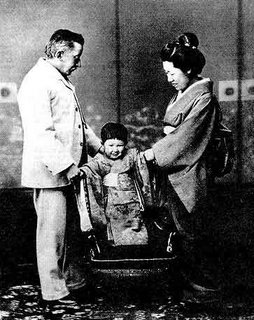 "Because people cannot see the color of words, the tints of words, the secret ghostly motion of words;
"Because people cannot see the color of words, the tints of words, the secret ghostly motion of words;"Because they cannot hear the whispering of words, the rustling of the procession of letters, the dream-flutes and dream-drums, which are thinly and weirdly played by words;
"Because they cannot perceive the pouting of words, the frowning and fuming of words, the weeping, the raging and racketing and rioting of words;
"Because they are insensible to the phosphorescing of words, the fragrance of words, the noisomeness of words, the tenderness or hardness, the dryness or juiciness of words, the interchange of values in the gold, the silver, the brass and the copper of words;
"Is that any reason why we should not try to make them hear, to make them see, to make them feel?"
"Because they cannot perceive the pouting of words, the frowning and fuming of words, the weeping, the raging and racketing and rioting of words;
"Because they are insensible to the phosphorescing of words, the fragrance of words, the noisomeness of words, the tenderness or hardness, the dryness or juiciness of words, the interchange of values in the gold, the silver, the brass and the copper of words;
"Is that any reason why we should not try to make them hear, to make them see, to make them feel?"
these are the words of lafcadio hearn (pictured here with his family), just one of the westerners, mainly americans, who became intrigued with japan and made it a major part of their lives, thus becoming invaluable conduits for this cultural exchange that was going on.
i want to talk in depth about each of them (and of others i'm sure to find along the way), but i wanted to do a short introduction of each first.
"In the late 19th century Japan was still largely unknown and exotic to the Western world. With the introduction of Japanese aesthetics, however, particularly at the Paris World's Fair in 1900, the West had an insatiable appetite for exotic Japan, and Hearn became known to the world through the depth, originality, sincerity and charm of his writings. In later years, some critics would accuse Hearn of exoticizing Japan, but as the man who offered the West some of its first glimpses into pre-industrial and Meiji Era Japan, his work still offers valuable insight today." (from wikipedia)
would accuse Hearn of exoticizing Japan, but as the man who offered the West some of its first glimpses into pre-industrial and Meiji Era Japan, his work still offers valuable insight today." (from wikipedia)
over time, i want to go more fully into the contributions of hearn, as well as those commodore matthew perry, edward morse, ernest fenollosa, ezra pound, bertha lum, helen hyde, arthur wesley dow, and of course, s. bing. it's fascinating to me, how the two cultures became intertwined. but i also don't want to lose track of the questions that keep cropping up: did the westerners "exoticize" japan? was it helpful to the japanese to redefine for them the nature of their own arts?
aggh.... too long a post already.... one step at a time....
i want to talk in depth about each of them (and of others i'm sure to find along the way), but i wanted to do a short introduction of each first.
"In the late 19th century Japan was still largely unknown and exotic to the Western world. With the introduction of Japanese aesthetics, however, particularly at the Paris World's Fair in 1900, the West had an insatiable appetite for exotic Japan, and Hearn became known to the world through the depth, originality, sincerity and charm of his writings. In later years, some critics
 would accuse Hearn of exoticizing Japan, but as the man who offered the West some of its first glimpses into pre-industrial and Meiji Era Japan, his work still offers valuable insight today." (from wikipedia)
would accuse Hearn of exoticizing Japan, but as the man who offered the West some of its first glimpses into pre-industrial and Meiji Era Japan, his work still offers valuable insight today." (from wikipedia)over time, i want to go more fully into the contributions of hearn, as well as those commodore matthew perry, edward morse, ernest fenollosa, ezra pound, bertha lum, helen hyde, arthur wesley dow, and of course, s. bing. it's fascinating to me, how the two cultures became intertwined. but i also don't want to lose track of the questions that keep cropping up: did the westerners "exoticize" japan? was it helpful to the japanese to redefine for them the nature of their own arts?
aggh.... too long a post already.... one step at a time....


No comments:
Post a Comment